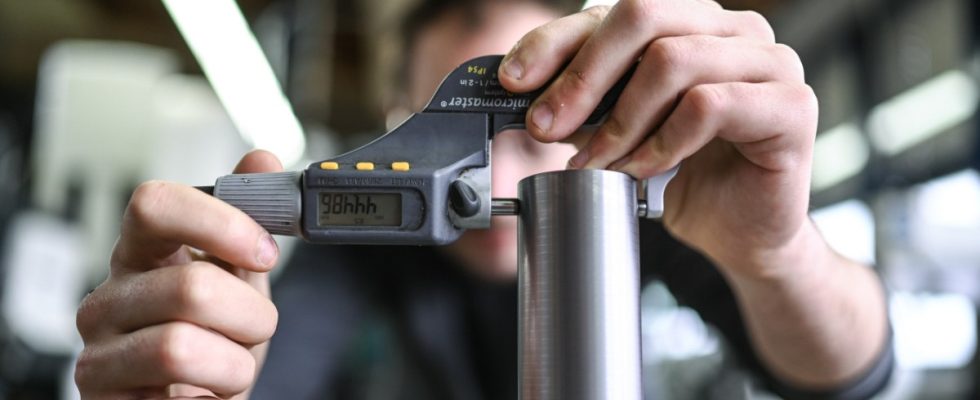The business situation in the Bavarian metal and electrical industry deteriorated in the second half of 2023. Only just under a quarter of companies rate this as good. And: “Expectations for the coming months remain pessimistic,” said Bertram Brossardt, general manager of the employers’ associations Bayme and VBM, when presenting a survey on Tuesday in Munich. In this context, he pointed to the federal government’s budget policy, high energy and labor costs and “excessive bureaucracy”.
The result: Companies in the metal and electrical industries want to invest even less in the coming year. “Two thirds of companies see worse location conditions domestically,” said Brossardt. That is why domestic investment plans in particular have fallen. In addition, the gap in favor of foreign investments has widened further. “Every second company wants to invest abroad, while at home it’s only every seventh.”
The metal and electrical industries are recording an increase in employment. This is even better than initially forecast. Companies are expected to create 11,000 new jobs by the end of the year. The number of employees has reached a high of 878,000. However, some sectors plan to cut jobs next year. These are primarily the electronics industry and manufacturers of metal products. Overall, a decline in employment of around 5,000 people is expected next year. Only a fifth of companies want to create jobs – especially in the IT sector and in “other vehicle construction”https://www.sueddeutsche.de/bayern/.”If we don’t change course, we will see an increase in unemployment,” warned Brossardt.
According to the survey, companies’ production also developed somewhat better than initially expected. Instead of a slight increase of a maximum of one percent, the metal and electrical industry is now expected to record an increase of three percent. Since, among other things, supply chain problems have been resolved, companies have been able to process pent-up orders. However, only a few new orders are added. “We expect stagnation next year,” said Brossardt.
He warns that deindustrialization could occur “if the general conditions do not improve quickly and politicians ensure planning security and stability.” Specifically, Brossardt calls for a reliable energy supply at competitive prices. Despite the budget situation, the federal government must reduce the electricity tax for the manufacturing industry and introduce a bridge electricity price. In addition, social security contribution rates must return to a common target of less than 40 percent. Brossardt described the federal government’s budget planning as “complete misplanning”. The traffic light should focus on saving and not on additional burdens for the economy and citizens. For next year’s collective bargaining, he announced that “the trees won’t grow to the sky.”

